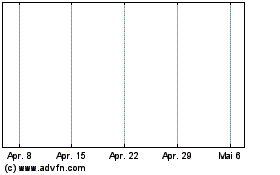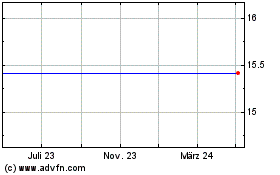By Nick Kostov and Nora Naughton
The head of Jeep's owner said he is open to dropping the
Cherokee name from vehicles after recent criticism from the Native
American tribe's leader.
Carlos Tavares, chief executive officer of the recently formed
Stellantis NV, said the company was engaged in dialogue with the
Cherokee Nation over its use of the name. Jeep has two models, the
Cherokee compact sport-utility vehicle and larger Grand Cherokee,
that it sells in the U.S. and beyond.
Asked in an interview if he would be willing to change the Jeep
Cherokee's name if pushed to do so, Mr. Tavares said, "We are ready
to go to any point, up to the point where we decide with the
appropriate people and with no intermediaries."
"At this stage, I don't know if there is a real problem. But if
there is one, well, of course we will solve it," Mr. Tavares said,
adding that he wasn't personally involved in the talks.
Debate over the Cherokee name is among the issues facing Mr.
Tavares, who took control of Stellantis when it was formed earlier
this year from the merger of Fiat Chrysler Automobiles NV and
Peugeot-maker PSA. In the interview Wednesday, Mr. Tavares also
discussed whether to cut down on the company's 14 brands, making
Fiat plants more competitive and his plan to stick with China.
The Cherokee Nation is the largest Native American tribe in the
U.S., with some 370,000 members, and Jeep has sold millions of
vehicles named after it. The auto brand extended its use of the
Cherokee name to a compact SUV, a smaller version of the Grand
Cherokee, in 2013.
The leader of the Cherokee Nation recently said he would like to
see Jeep stop using his tribe's name on its SUVs. Chuck Hoskin Jr.,
principal chief of the Cherokee Nation, said that he believed Jeep
had good intentions but that "it does not honor us by having our
name plastered on the side of a car," according to a statement
first released to Car and Driver last week.
Chief Hoskin couldn't be immediately reached for comment.
Mr. Tavares's remarks come in the wake of a broad reckoning over
racial and social injustice in the U.S. that was sparked by the
police killing of George Floyd, an unarmed Black man, in
Minneapolis over Memorial Day weekend last year. In December, the
Cleveland Indians decided to drop the baseball team's longtime
nickname after fans and Native American groups criticized it as
racist. The Washington Football Team of the NFL has dropped a name
that had been seen as a racial slur.
The Jeep Cherokee and Grand Cherokee SUVs are among the brand's
bestsellers in the U.S., accounting for 43% of Jeep's sales in its
largest market, according to company figures. Stellantis is rolling
out a long-awaited redesign of the Grand Cherokee later this
year.
Mr. Tavares said the auto industry's practice of naming cars
after Native American tribes was a sign of respect.
"I don't see anything that would be negative here. I think it's
just a matter of expressing our creative passion, our artistic
capabilities," Mr. Tavares said.
The Jeep brand sits alongside profit-drivers like Ram in the
U.S. and Peugeot in Europe. But the company's sprawling portfolio
of 14 brands also includes some that will need to prove their
worth, Mr. Tavares said.
Mr. Tavares said he has asked each of his brand chiefs to work
on a 10-year plan to develop more long-term visibility on product
planning.
"I'm saying, 'Look guys, I'm going to give you a chance. You
need to convince me -- you, the brand CEO -- that you have a
vision,'" Mr. Tavares said.
After several turnaround efforts, Fiat Chrysler's Alfa Romeo and
Maserati brands have failed to mount meaningful comebacks in recent
years. The Fiat brand struggles with aging models and weak sales,
which has caused an overcapacity problem in the company's Italian
factories.
Even the storied Chrysler brand has waned in recent years, now
selling only three models compared with the six it carried a decade
ago. The brand's U.S. sales have also slid to one-third their
volume in 2015, according to company figures.
On the PSA side, the DS brand -- which focuses on high-end
sedans and SUVs -- grew market share last year but continues to lag
far behind some of its German competitors.
"After we give them a chance to fail, we need to be also fair,"
Mr. Tavares said. "If the rest of the company is doing the right
things and there is one part of the company that is pulling
everybody down, we'll have to take that into consideration."
The Portuguese executive built his reputation in the automotive
industry as a turnaround expert. Peugeot was bleeding money when it
hired Mr. Tavares in 2013. Since then the French car maker has gone
from losing 5 billion euros, equivalent to about $6 billion, in
2012 to becoming one of the most profitable mass-market car makers
in the industry. Last year it reported a net profit of EUR2.17
billion, or roughly $2.62 billion, with an adjusted operating
margin of 7.1% in its core automotive business.
This time, Mr. Tavares has a longer to-do list, including
integrating the two companies' European businesses and stemming
losses in China.
In Europe, Mr. Tavares has been visiting Fiat Chrysler factories
-- including an Alfa Romeo facility 80 miles south of Rome -- and
encouraging them to benchmark their performance against PSA plants.
Additionally, employees from Fiat Chrysler's Fiat factory in
Mirafiori, Italy, visited PSA's Citroën's plant in Madrid, and Mr.
Tavares said they were surprised by the nonlabor cost savings they
observed.
The auto executive said the new company could reach its
cost-saving goals in Europe without closing factories.
Asked what lessons he had learned from the chip shortage that
has idled car plants across the world, Mr. Tavares said large
suppliers didn't relay signals they were receiving about the
looming crisis. "We were not protected," he said. "That's a clear
lesson learned."
Mr. Tavares said the industrywide shift toward electrification
would continue to rely on government subsidies and other financial
incentives for buyers until auto makers figure out how to lower
production costs over the next few years.
"If we propose electric vehicles which are extremely efficient
but nobody can buy because they are costly, what's the point from
an environmental perspective?" he said.
In China, the combined sales of Peugeot and Fiat Chrysler
accounted for less than 1% of a market that sold 20 million
vehicles last year, according to industry data. Fiat Chrysler has
long struggled to turn a profit in the world's largest automotive
market, while the French car maker sold only 45,965 vehicles in
China last year, continuing a rapid multiyear decline.
Mr. Tavares said Stellantis isn't considering exiting China,
removing an option that he said was still on the table when the
company started trading in New York at the start of this year.
"We cannot be away from the biggest market in the world," he
said.
Write to Nick Kostov at Nick.Kostov@wsj.com and Nora Naughton at
Nora.Naughton@wsj.com
(END) Dow Jones Newswires
March 03, 2021 15:09 ET (20:09 GMT)
Copyright (c) 2021 Dow Jones & Company, Inc.
Stellantis NV (BIT:STLA)
Historical Stock Chart
Von Mär 2024 bis Apr 2024

Stellantis NV (BIT:STLA)
Historical Stock Chart
Von Apr 2023 bis Apr 2024
